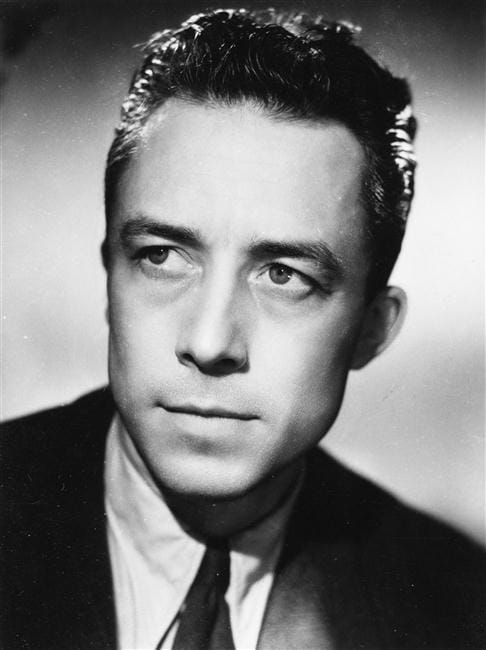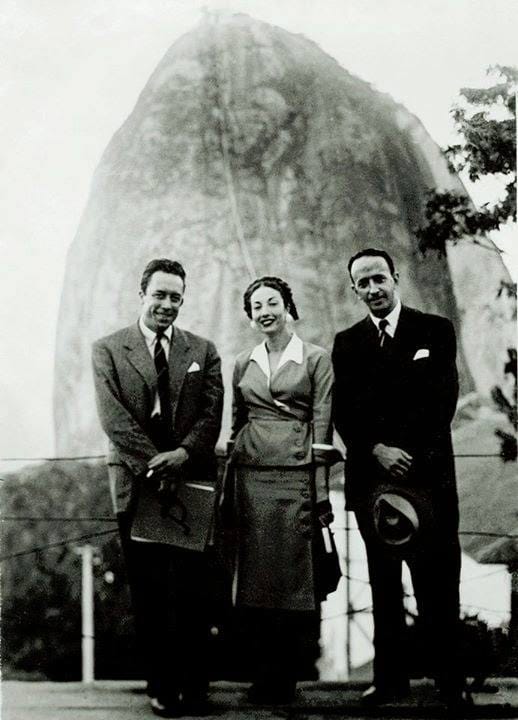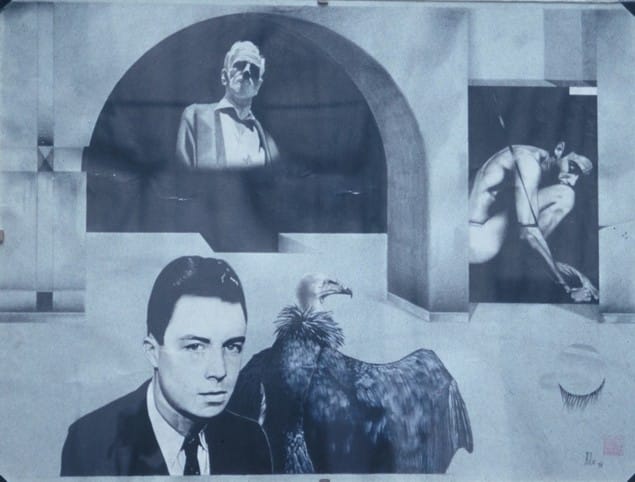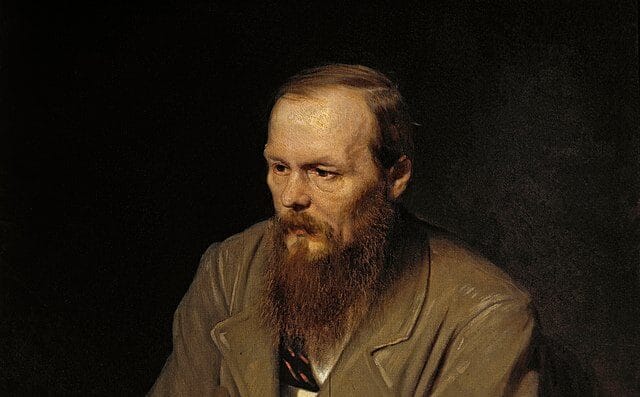35 Thoughtful Quotes by Albert Camus Explained Simply
Albert Camus (1913–1960) was a French-Algerian philosopher, writer, and journalist whose works explored themes of absurdity, freedom, and rebellion. Born into poverty in Algeria, Camus rose to become one of the most influential thinkers of the 20th century. He believed in confronting life’s emptiness not with despair, but with courage, clarity, and quiet dignity. Through novels like The Stranger and essays like The Myth of Sisyphus, Camus helped millions find meaning—not in grand answers, but in how we choose to live. This post brings together 35 of Albert Camus’s most powerful quotes, drawn from his five greatest works.

I. 7 Best Albert Camus Quotes from The Fall (1956)
1. “We all have need of some one to look at us. We can’t be fully ourselves without a witness.”
The Fall (1956)
Camus touches on a deep truth about human nature—we seek validation. We long for someone who sees us, understands us, and confirms that we matter.
2. “People hasten to judge in order not to be judged themselves.”
The Fall (1956)
So often, we criticize others to protect ourselves. Camus exposes this habit gently—showing how judgment can be a shield against our own fears.
3. “A single sentence will suffice for modern man: he fornicated and read the papers.”
The Fall (1956)
With bitter irony, Camus captures a life of distraction and superficial pleasure. It’s a warning about wasting life on habits that numb rather than nourish.
4. “You know what charm is: a way of getting the answer yes without having asked any clear question.”
The Fall (1956)
Here, Camus playfully shows how people often use subtle manipulation in relationships. Charm can mask a lack of honesty or real connection.
5. “To be happy, we must not be too concerned with others.”
The Fall (1956)
Camus suggests that constant comparison or dependence on others’ approval steals our peace. Real happiness is quietly self-contained.
6. “We always deceive ourselves twice about the people we love—first to their advantage, then to their disadvantage.”
The Fall (1956)
Love distorts perception. At first, we see someone as perfect, then later we overcorrect and see them as worse than they are. Camus captures both illusions.
7. “Everyone needs a slave. Someone to look down upon. That’s the truth of most friendships.”
The Fall (1956)
A brutally honest observation. Camus reflects how ego often creeps into our relationships—we feel better about ourselves when we’re not the lowest.
II. 7 Best Quotes from The Stranger (The Outsider, 1942)
8. “I laid my heart open to the benign indifference of the universe.”
The Stranger (1942)
Camus expresses the moment when we accept that the universe doesn’t owe us meaning. Yet in that coldness, there’s a strange peace.
9. “Since we’re all going to die, it’s obvious that when and how don’t matter.”
The Stranger (1942)
This is Meursault’s detached logic—but underneath is Camus’s deeper point: death is certain, so what matters is how we live before it.
10. “I may not have been sure about what really did interest me, but I was absolutely sure about what didn’t.”
The Stranger (1942)
Camus highlights clarity through negation. Sometimes we define our path not by passions but by what we refuse to settle for.
11. “Mother used to say that you can always find something to be happy about.”
The Stranger (1942)
A soft reminder from Camus through Meursault’s memory. Even in bleakness, there are small lights—if we choose to see them.
12. “I opened myself to the gentle indifference of the world.”
The Stranger (1942)
This line shows a strange kind of harmony. Camus finds peace not in meaning, but in learning to live with the universe as it is.
13. “I had only a little time left and I didn’t want to waste it on God.”
The Stranger (1942)
Camus portrays a man facing death with honesty. Rather than seeking false comfort, he embraces his remaining life fully and freely.
14. “I felt the urge to reassure him that I was like everybody else, just like everybody else.”
The Stranger (1942)
This reflects a human longing to belong—even in isolation. Camus shows how we crave connection, even when we pretend not to care.
III. 7 Best Quotes from The Myth of Sisyphus (1942)
15. “There is but one truly serious philosophical problem—and that is suicide.”
The Myth of Sisyphus (1942)
Camus begins with stark honesty. The core question is whether life is worth living. From there, everything else unfolds.
16. “One must imagine Sisyphus happy.”
The Myth of Sisyphus (1942)
The most iconic line. Even in endless struggle, meaning can be found—not in success, but in choosing to carry on with awareness.
17. “In order to understand the world, one has to turn away from it on occasion.”
The Myth of Sisyphus (1942)
Camus suggests that solitude is essential for clarity. By stepping back, we see the world more honestly and ourselves more deeply.
18. “There is no love of life without despair of life.”
The Myth of Sisyphus (1942)
Camus believes true love for life comes only after we face its darkness. Joy becomes real when we’ve accepted suffering, not denied it.
19. “To create is to live twice.”
The Myth of Sisyphus (1942)
Through art or any form of creation, we re-live life with new meaning. It becomes a second, more conscious existence.
20. “Seeking what is true is not seeking what is desirable.”
The Myth of Sisyphus (1942)
Camus warns against wishful thinking. Truth is often uncomfortable—but it’s worth more than illusions that make us feel better.
21. “At the heart of all beauty lies something inhuman.”
The Myth of Sisyphus (1942)
Beauty moves us because it’s indifferent—it exists beyond us, reminding us how small and temporary we are in a vast, silent world.
IV. 7 Best Quotes from A Happy Death (1971, posthumous)
22. “You have to be very rich, or very poor, to live as you want.”
A Happy Death (1971)
Camus speaks to freedom. Often, comfort traps us. Only at the extremes do people break from society’s demands and live on their own terms.
23. “I used to think I had a right to life. Now I have the duty to make it right.”
A Happy Death (1971)
A powerful shift—from entitlement to responsibility. Camus emphasizes personal ownership over how we shape our brief time here.
24. “It takes time to live. Like any work of art, life needs to be thought about.”
A Happy Death (1971)
Life isn’t something to rush through. Camus compares it to art—something that requires reflection, intention, and care.
25. “I chose the path of certainty, even if it was the hardest.”
A Happy Death (1971)
Camus’s characters often reject easy comforts in favor of truth. This quote reflects the courage it takes to live deliberately.
26. “It is better to burn than to disappear.”
A Happy Death (1971)
A call to intensity. Camus would rather we live with fire and passion than fade away quietly without ever feeling alive.
27. “I had learned to live only through the body, and happiness always came from it.”
A Happy Death (1971)
Camus shows that joy often comes from physical presence—sunlight, sea, movement. Living in the body brings us back to now.
28. “Man is the only creature who refuses to be what he is.”
A Happy Death (1971)
This paradox speaks of our restlessness. Unlike animals, we are never satisfied just being—we always reach, question, rebel.

V. 7 Best Camus’ Quotes from The Rebel (1951)
29. “What is a rebel? A man who says no: but whose refusal does not imply a renunciation.”
The Rebel (1951)
Rebellion, for Camus, is not destruction. It’s an act of dignity—a refusal to accept injustice while still loving life.
30. “Every act of rebellion expresses a nostalgia for innocence and an appeal to the essence of being.”
The Rebel (1951)
We rebel not just out of anger, but from a longing for purity—for a world that makes sense and a life that feels whole.
31. “Rebellion cannot exist without a strange form of love.”
The Rebel (1951)
True rebellion comes from care. We revolt because we love people, justice, and truth—because we want the world to be better.
32. “Real generosity toward the future lies in giving all to the present.”
The Rebel (1951)
This quote is a gentle push: stop waiting. The best way to honor the future is by living this moment fully and fearlessly.
33. “Absolute freedom mocks justice. Absolute justice denies freedom.”
The Rebel (1951)
Camus warns against extremes. Freedom and justice must balance each other—pushed too far, they cancel out what makes life worth living.
34. “A man is more a man through the things he keeps to himself than through those he says.”
The Rebel (1951)
Dignity often lies in restraint. Not every thought needs to be said; sometimes silence holds more strength and grace.
35. “To revolt is to affirm a value.”
The Rebel (1951)
Camus reminds us that to rebel is not to destroy, but to stand for something meaningful. It’s a declaration that life has worth.

If you found meaning in these quotes, we invite you to explore more of Camus’s thought in our Book Summaries section. Begin with our in-depth summary of The Stranger—a haunting story of detachment and clarity. You can also read summary and our reflection on The Silent Man—a lesser-known but deeply moving work. These posts dive deeper into the heart of Camus’s philosophy, making it easier to understand, feel, and live by.



Hello! Do you uuse Twitter? I’d like to follow you
if that would be ok. I’m absolutely enjoying
youyr blkog and look forward to new updates.
Thanks for the appreciation! I don’t use twitter. I am on linkedin. You can share your linkedin profile with me to connect there. You can email me at connect.nidhiisingh@gmail.com.